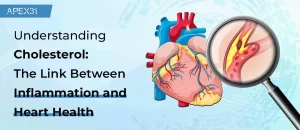Intermittent Fasting – The Facts and the Fiction

Are you aware of the fact that in the health and wellness space, few topics have generated an unprecedented curiosity than intermittent fasting among the general audience? In fact, there have been numerous articles and social media posts that have intrigued so many individuals about this phenomenon.
Intermittent fasting is a dietary methodology that cycles between periods of eating and fasting. It would not be an understatement to say that this ancient spiritual practice has become a contemporary trend followed by so many health-conscious people all over the world.
In this blog post, you’ll get to learn about intermittent fasting and its benefits. So, let’s begin!
The Role of Insulin Sensitivity and Blood Sugar
The biggest benefit of intermittent fasting is its impact on insulin sensitivity. Here’s how intermittent fasting plays a huge role in taking care of insulin sensitivity:-
Preventing Insulin Sensitivity: Intermittent fasting prevents insulin sensitivity, which is linked to type 2 diabetes, fat storage, and even high blood pressure.
Improved Sensitivity: With fasting, your body gets a necessary break from food, which will allow your insulin levels to drop. It will reset your cells’ response to insulin, making them a lot more sensitive, along with improving the blood sugar control.
Metabolic Health: The improved insulin sensitivity will not just support your metabolic health but also encourage your body to burn stored fat for energy.
Promoting Weight Management and Fat Burning
For most individuals, the most lucrative benefit of intermittent fasting is its potential for weight loss. It’s because:-
Burns Stored Fat: When you are doing intermittent fasting, your body utilizes the quick-access glucose(sugar) stores. It forces your body to switch to a condition known as ketosis, in which it starts burning fat for energy.
Lessens the Calorie Intake: Having a limited eating window can help those people who check their calorie intake almost on a daily basis.
Controls Cravings: Because of the reduced intake of meals and snacks, you will be able to easily manage your total food intake.
Boosts Metabolism: You need to know that the benefits of intermittent fasting go a long way beyond weight loss. As a matter of fact, it can change how your body utilizes energy, which can lead to a much more efficient metabolism.
The Process of Cellular Repair (Autophagy)
Do you know that intermittent fasting can trigger a natural process, which is known as autophagy? It is nothing but a deep clean for your cells. Some of the benefits of intermittent fasting when it comes to autophagy are as follows:-
Recycles Damaged Cells: When your body isn’t busy digesting food, it initiates the process of breaking down and even recycling old or damaged components, such as dysfunctional proteins.
Supports Cellular Health: This cellular cleaning is important for maintaining healthy cells. It can even help reduce the risk of neurodegenerative and other age-related diseases.
Promotes Regeneration: The body repurposes the energy and materials from these broken-down components to build new, healthy cells. These cells contribute to overall vitality and longevity.
Boosting Human Growth Hormone (HGH) Production
You would be surprised to know that intermittent fasting has been shown in some studies to significantly increase the natural production of Human Growth Hormone (HGH). Some of the advantages of intermittent fasting in this regard are as follows:-
Supports Metabolism and Repair: HGH is crucial for many functions, including metabolism, cellular repair, and maintaining a healthy body composition.
Preserves Muscle Mass: During weight loss, increased HGH helps protect and preserve lean muscle while promoting fat burning.
Promotes Longevity: This natural increase in HGH is an important benefit for those interested in graceful aging and overall well-being, as it leads to a more resilient body.
Decreasing Chronic Inflammation
Chronic inflammation has now been recognized as the main reason behind many chronic diseases, such as heart disease, arthritis, and even some types of cancers. The benefits of intermittent fasting with respect to chronic inflammation are written below:-
Combats Chronic Inflammation: Intermittent fasting may help reduce chronic inflammation, which is one of the major reasons behind many diseases, such as heart disease and arthritis.
Allows for Healing: By giving the digestive system a break, fasting allows your body to redirect energy from digestion toward healing and repair.
Lowers Inflammatory Markers: Studies suggest that fasting can lower levels of inflammatory markers like C-reactive protein (CRP) in the body.
Reduces Disease Risk: By decreasing systemic inflammation, fasting helps lessen the burden on your cardiovascular system and can contribute to a lower risk of chronic illness.
Improving Cardiovascular Health
Intermittent fasting provides several advantages which are directly related to heart health. Some of them are as follows:-
Improves Lipid Profile: Fasting can help lower “bad” cholesterol (LDL) and triglycerides while potentially raising “good” cholesterol (HDL). This helps prevent plaque buildup in arteries.
Lowers Blood Pressure: It is linked to a reduction in both systolic and diastolic blood pressure, a big benefit for heart health.
Better Heart Rate Variability: Fasting has been associated with improved heart rate variability. It is an important measure of a healthy heart.
Reduces Overall Risk: The combined effects of lower inflammation, a healthier lipid profile, and better blood pressure make fasting a necessity in the prevention of heart disease.
In a Nutshell
Intermittent fasting is a great tool that you can use to ensure your better health and sustained wellness. There have been numerous studies and a substantial amount of evidence that shows intermittent fasting has a lot of benefits for metabolic health, cellular repair, and cardiovascular well-being. From getting a lot better insulin sensitivity to robust weight management to profound effects of autophagy and reduced inflammation, the benefits are immense.
But you need to do your due diligence and follow this practice with a balanced and informed perspective. For this purpose, you need to avoid the exaggerated claims and unsubstantiated conspiracy theories that unfortunately circulate online.
You need to understand that fasting is not a magic bullet or a substitute for professional medical care. Instead, it is a complementary strategy! When intermittent fasting is done safely and in consultation with a healthcare professional, it can be a valuable part of a holistic approach to long-term health and vitality.



